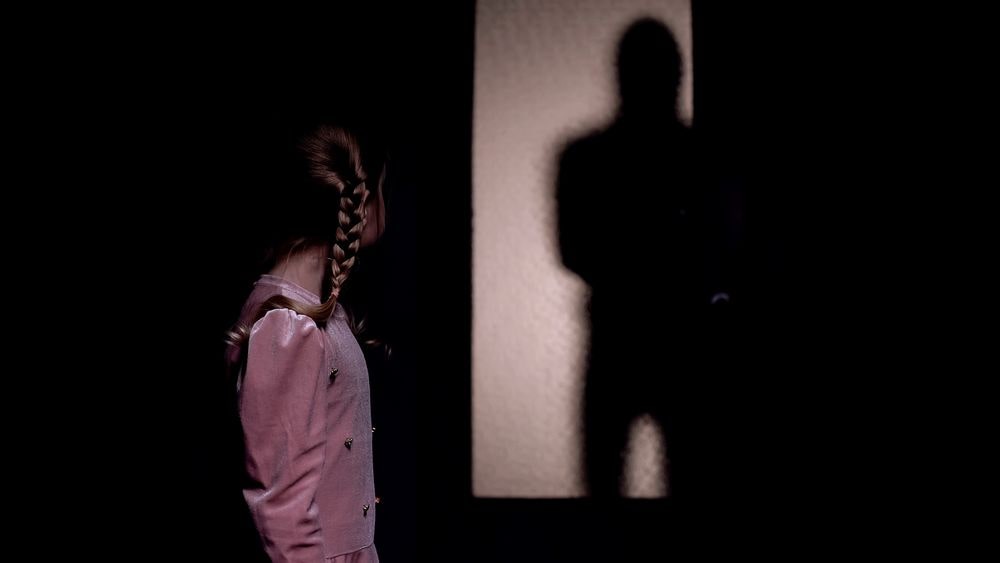
Why am I Afraid of Anger?
…
Going back to the fundamentals.
How my Fear of Anger Started
I know I’ve covered this ground before but it’s always good, and I even think necessary, to go back to the fundamentals and remind yourself over and over again, why you’re feeling the way you are.
I think it’s because most of my emotional world is unconscious, even after all this digging, and so I have to keep bringing it up to the surface time and time again to be able to work on it.
In my case I can see that my fear of anger came about in a few different ways and I’ll talk about each one of them below.
1- ANGRY FATHER
When I was a small child my father was scary. He was always in a bad mood and it showed. He used to throw his weight around the house and dominate everyone and everything via his hostility. I say hostility because anger is very healthy to express but most people call anger hostility.
He yelled a lot, got frustrated much of the time and always looked for someone in the house to take it out on. You never really knew when he would explode or when he would decide that you were going to be the outlet for his frustration that day.
But most of all he scared me. To me it seemed like a monster was gonna come and get me. Every time he got angry and intense, his nostrils would flare, his eyes would get dark and wide, his teeth would show as he snarled and all of that hostility was directed at me.
I felt like a trapped prey animal with an unstable predator ready to do his worst. He was as close to a monster to me as I’ve ever experienced.
He did slap me and hit me every so often but that was nothing compared to the intensity of his yelling. When he yelled, it felt like he might lose control at any time, and I was right there in his path.
So today as an adult, I still have that conditioned response in me when I encounter anger in somebody else. Even if they are much smaller and weaker than I am. It’s not the person so much as the anger itself that triggers my anxious reaction.

Mother
2- ANGRY MOTHER
My mother was angry in the opposite way. She tended to be angelic on the outside but passive-aggressive on the inside. So I grew up thinking that she was the good cop and my dad was a bad cop, when in truth they were both bad cops, at least when it came to anger.
If my mother wasn’t pleased then she would pull away subtly so that it was very difficult to perceive to anyone observing on the outside, but apparent to whoever she was directing the passive aggressiveness toward.
I much preferred this type of anger but it was still damaging nonetheless. As a four-year-old when you see your mother communicating to you that if she’s not happy with the way you act then she’s going to pull away, that is anxiety provoking.
As a kid I understood intuitively that my parents were linked to my survival and so if they decided that they weren’t gonna take care of me anymore then my life was at stake. Of course this was all unconscious, or out of the awareness of a four-year-old but at that age I think we all understand when we are in danger.
So I learned to be hyper vigilant around both my parents, and with my mother I realized that I needed to make sure that she was happy every so often so that I could feel safe.
As an adult today, I still try to manage other people’s anger, or more accurately, appease their anger, by taking on a somewhat codependent role with them because them pulling away from me or being unhappy with me, triggers that survival instinct again.
Even though it’s ridiculous in some cases (like asking the gas station attendant for a receipt when they clearly look like they don’t feel like giving you one and that makes you uncomfortable), it doesn’t matter. That conditioned response is still there.

Anger Bad
3- ANGER IS BAD (CULTURE)
Our culture has a problem with anger. Once again I don’t mean hostility, which of course we should have a problem with, but anger itself.
Hostility is yelling, screaming, having a tantrum, and being violent. Nobody likes that – I think we can all agree.
But anger is basically assertiveness. And right now everyone is talking about how we need to be more assertive, and stand up for ourselves, and how healthy that is etc. But underneath I think that we still send out the opposite message, that it isn’t good to be assertive because assertiveness is anger and anger is bad.
I think that we think anger is bad because we have a difficult time dealing with it in general whether it’s our own or somebody else’s.
Anger is simply saying no when you want to say no. It’s also asking for what you want. When we say “no” we might hurt somebody else’s feelings. When we ask for what we want it might inconvenience somebody else and so we’re told we’re being selfish.
Also many of us are not good at expressing our anger in a healthy way, meaning being assertive, and so it’s a lot easier to disapprove of anger in general, and disapprove of people who are expressing it in a healthy way, than it is to try to change ourselves. Than it is to go through the discomfort of asserting ourselves with the goal of getting to a place where we are comfortable doing so routinely.
I got many of these disapproving cues from my parents who much preferred it when I did what they wanted (so I didn’t say no) and also kept quiet (so I wouldn’t bother them by asking for anything). Their reactions to me was of annoyance and frustration whenever I would express my anger in a healthy way – again by saying no or asking for something.
I also got many of these cues from our culture. From teachers, movies, TV and other adults around me. Again they all say that it’s healthy to assert ourselves but at the same time give other messages of this approval which are expressed in a way so that they reside just outside of our awareness.
So again as an adult today, I worry that the entire world will not approve of me being assertive. I received thousands of messages from the environment throughout most of my life that told me not to.
…

Fear of Anger
This was just a quick write up in a good mental exercise to remind myself of why I happen to be afraid of anger. It lets me look into the past see the origin of it, and helps me realize that the people who created those conditioned responses were in fact incorrect to do so. They shouldn’t have acted that way towards me and given me those messages. That information is just a bit that I hope will help me in this process I’m undergoing to overcome my fear of anger.
Awareness is the key
– FOA
*** If you’re going through something similar then I hope this helped. If you are, I invite you to share it with me and everybody else who visits here by typing it up and emailing it over. I’ll post it on the blog which would benefit everyone; you for writing it up – which gets you in touch with your unconscious more and with this issue of yours specifically – and us for relating with it and perhaps seeing our own issue from a different angle.
...

SUBMIT A POST!
To submit a post, click here. Post your experience with your fear of anger (FOA).
The best way to help yourself and others get over your FOA is to share and connect in as many ways as you can.


